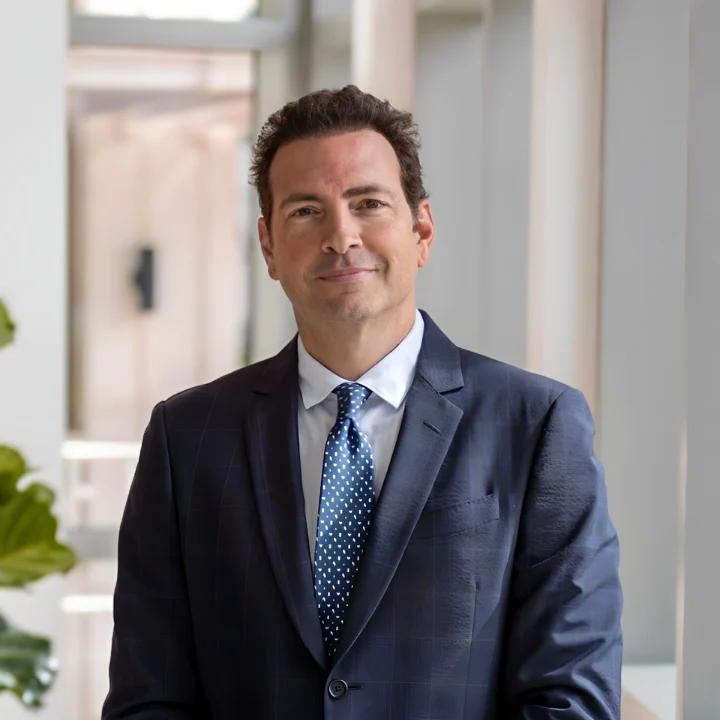Gynecomastia in Miami Beach, FL
Regain your confidence with Dr. Gabriel Salloum’s Gynecomastia treatment in Miami Beach, FL. Our specialized approach effectively reduces enlarged male breasts, restoring a more masculine chest contour.
4.9(69)
Gynecomastia Treatment Benefits
The treatment effectively reduces enlarged breast tissue, resulting in a firmer, more masculine chest contour.
By correcting the physical appearance, this procedure significantly boosts self-esteem and body image.
Addressing both physical and hormonal aspects, the treatment offers long-term relief from the symptoms of Gynecomastia.
There are a few different ways to treat gynecomastia, depending on the severity of the condition. If the cause is mainly from excess glandular tissue, then breast reduction surgery may be recommended to remove any excess breast tissue. On the other hand, if there is mostly an accumulation of fat causing the enlargement of the breasts, then liposuction may be used as a treatment option instead.
No matter what type of treatment is chosen for Gynecomastia, it’s important for men suffering from this condition to understand that it’s a common medical issue and there are options available for them. With proper diagnosis and treatment plans tailored towards their individual case, men can find relief from their enlarged breasts and restore their confidence again in Miami Beach, FL.

Who is an Ideal Candidate for Gynecomastia Surgery?
An ideal candidate for gynecomastia surgery is a male who has enlarged breast tissue due to an imbalance in hormone levels or due to excess glandular breast tissue. It is important that before a patient undergoes any type of surgical treatment to reduce their gynecomastia, they should have their medical history evaluated by a doctor.
This evaluation should include any family history of breast cancer, any health conditions which may affect the hormones and cause hormonal imbalances, as well as medications they are taking such as calcium channel blockers and adrenal gland inhibitors. Additionally, if there is any nipple discharge during physical exams, further testing may be necessary to rule out any underlying health issues such as mammary duct ectasia or fibrocystic changes.
Once the medical history has been evaluated and all other possible health problems have been ruled out, then a physician can more accurately assess whether or not surgery is the best option for treating gynecomastia. Generally speaking, those patients who suffer from gynecomastia due to an excess of glandular tissue are considered the best candidates for this cosmetic procedure because it is the most effective way of removing this excess tissue. For those whose enlarged breasts are caused by an imbalance in hormones, hormone therapy may also be recommended alongside surgery in order to provide a longer-term solution for their condition.
Your Gynecomastia consultation
At Dr. Salloum’s Miami Beach office, we offer thorough consultations for patients considering breast reduction surgery for gynecomastia. During the consultation, we take a detailed medical history, perform a physical examination to confirm gynecomastia, and discuss the patient’s goals and expectations.
The physical exam includes palpating the area for lumps or tissue changes. Additional tests may be recommended, such as hormone level assessments (estrogen, testosterone, pituitary hormones) and, in some cases, mammograms to rule out conditions like breast cancer. For younger patients, ultrasounds may be conducted to identify underlying causes like fibrocystic changes or breast buds.


What Causes Gynecomastia?
Gynecomastia is a condition that causes enlargement of the male breast tissue due to hormonal imbalance or excess glandular component. While it is most commonly seen in men over age 50, it can also affect younger men as well. There are many potential causes of gynecomastia, including medical conditions, medications, and lifestyle factors. In addition to medical treatments, some individuals explore natural remedies for gynecomastia, although the effectiveness of such approaches can vary.
Medical conditions such as kidney failure and liver disease can cause hormonal imbalances that lead to gynecomastia. Certain medications, including the use of steroids causing gynecomastia, may also contribute to the development of this condition. Common culprits include testosterone replacement therapy, drugs used to treat prostate cancer, anti-anxiety medications, antipsychotics, and HIV medications. Excessive use of alcohol or recreational drugs may also be a factor in some cases. Additionally, certain endocrine disorders may disrupt hormone levels and lead to gynecomastia.
To properly diagnose gynecomastia and determine the underlying cause(s), doctors typically evaluate medical history and perform physical examinations in order to rule out other possible health issues that could be causing the enlarged breasts. Hormonal studies such as measuring estrogen levels, testosterone ratio, pituitary gland hormones, or growth hormones may also be requested in order to see if any hormonal imbalances are contributing to the condition. Additionally, an ultrasound may be used to assess the amount of glandular components present in the breast tissue for an accurate diagnosis of gynecomastia’s severity.
Once a doctor has determined what is causing gynecomastia they can suggest appropriate treatment options for correcting it including medical treatments or cosmetic surgery procedures like liposuction or a breast reduction procedure depending on the patient’s individual situation.
Rest as much as possible and don’t lift anything above your head.
It is important that any treatment plan addresses both physical aspects as well as any underlying hormonal imbalances so that patients have long-term relief from their condition.
Understanding the Gynecomastia procedure
Gynecomastia, a condition characterized by male breast enlargement due to an imbalance of testosterone and estrogen, affects many males and often begins during puberty. Up to 60-70% of boys may experience some degree of gynecomastia, though most cases are mild and resolve naturally without treatment.
Severe cases may affect prolactin levels, and medical therapies such as anti-estrogens, aromatase inhibitors, or selective estrogen receptor modulators (SERMs) can be used. For persistent or severe gynecomastia, surgery to remove excess breast or glandular tissue offers a long-term solution, restoring a natural chest contour without affecting hormone levels or overall body shape.


Male Breast Reduction Recovery
Patients can expect to experience some level of swelling and bruising during the first week after gynecomastia surgery. While gynecomastia surgery scars are typically minimal and well-concealed, it’s important to follow postoperative care instructions to ensure optimal healing. Physical activity should be limited during this time to allow the breast gland tissue to heal properly. Patients may also experience some degree of breast pain or discomfort, but these physical symptoms usually subside within a few weeks of surgery. Recovery after gynecomastia surgery can vary from patient to patient, but most patients are able to resume normal activities and physical exercise after about 4-6 weeks. Patients must follow their doctor’s instructions for postoperative care, as this will help ensure a smooth recovery with minimal downtime and optimal results.
Why Should I Choose Dr. Gabriel Salloum?
- Dr. Salloum is board-certified by the American Board of Plastic Surgery and the American Board of Surgery.
- He has over 18 years of experience in plastic surgery, providing natural-looking cosmetic results.
- Dr. Salloum completed his general surgery residency at Mount Sinai Medical Center in Miami, serving as Chief Surgical Resident.
- He completed the Hand Surgery Fellowship Program at the University of Virginia Medical Center and is one of the few fellowship-trained reconstructive hand surgery specialists in South Florida.
- Dr. Salloum completed the Plastic Surgery Program at the University of Texas at Houston, with extensive training in cosmetic surgery.
- He has received numerous 4.5 and 5-star reviews on Yelp, Healthgrades, Vitals, RealSelf, and Google, with a consistent track record of successful results and satisfied patients.
- Dr. Salloum is passionate about helping patients meet their cosmetic goals and gain confidence, taking the time to understand each patient and answer questions before creating a unique surgical plan.
- Dr. Salloum offers a full range of plastic surgical procedures, including facelifts, body contouring, liposuction, tummy tucks, thigh lifts, Brazilian butt lifts, and breast reconstruction, specializing in reconstructive surgery, ultrasound-assisted liposuction, facial restructuring, and body contouring.
- Named a NYT and Miami Best Doctor.

Frequently Asked Questions about Gynecomastia
What causes gynecomastia?
True gynecomastia is generally caused by hormonal fluctuations. Hormonal changes can occur at any time during life. They may be caused by pubertal development, aging, or disease. Certain medications, including anabolic steroids, marijuana, and certain types of cancer, can cause hormonal imbalances.
Will gynecomastia resolve itself?
If you develop gynecomastia during puberty, it may resolve itself over the course of several years. However, if it doesn’t go away, surgery may be necessary.
How is gynecomastia different from pseudo-gynecomastia?
Gynecomastia and pseudogynecomastia are not the same. True gynecomasty is an enlargement of the male breasts. Pseudogynecomastia is an enlargement of the chest due to the accumulation of fat. Usually, pseudo-gynecomastia occurs after significant weight gain. In consultation, Dr. Sallaoum examines the patient’s condition and determines if surgery is needed. He then performs a thorough examination of the patient’s body and explains his findings to the patient. Afterward, he provides recommendations regarding the best course of action.
What can I expect from a gynecomastia treatment?
Once the body has recovered from the procedure and any remaining swelling has subsided, you can look forward to a firmer, flatter chest contour after breast reduction surgery.
What Miami Gynecomastia office is near me?
If you live near Miami Beach, FL, Miami Center For Plastic Surgery offers gynecomastia among its services, and is conveniently located at 4308 Alton Road #720 Miami Beach, FL 33140.
